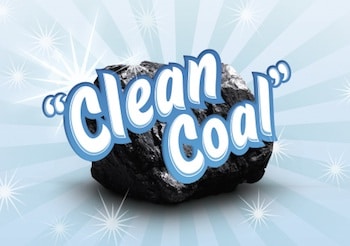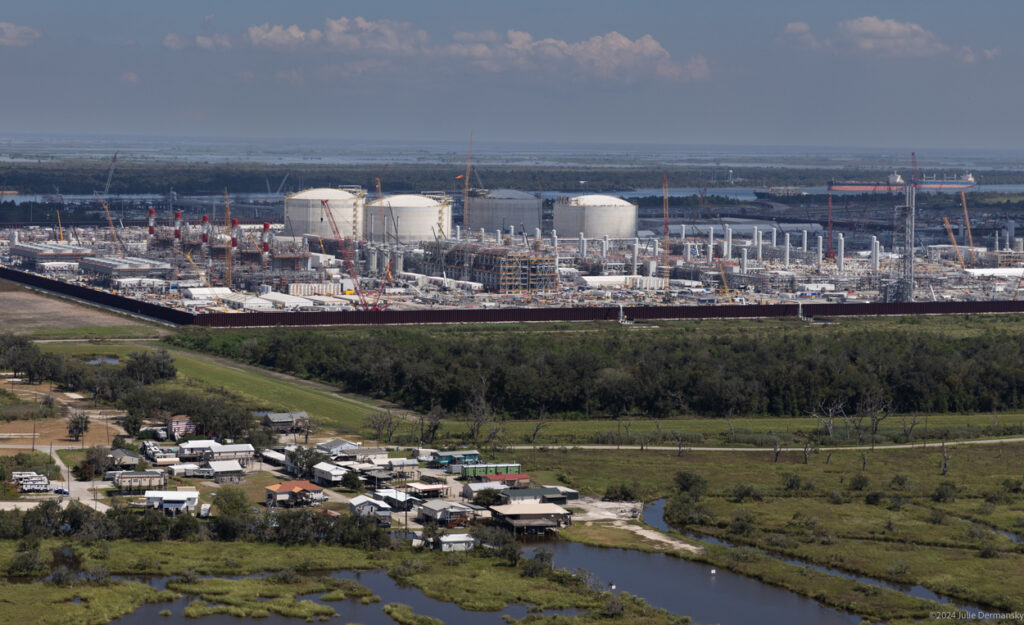The phrase “clean coal” has about as much merit as saying “sanitary sewage,” but that hasn’t stopped the industry and pro-coal talking heads from repeating that phrase ad nauseum to the American public.
The Orwellian industry buzzphrase was so successful that the Obama administration, as part of the 2009 stimulus package, pledged more than $1 billion to create the largest carbon-capturing system known as FutureGen 2.0. The total cost of the project was estimated at $1.65 billion, with $116 million already spent by the federal government.
But this week, the Department of Energy (DOE) announced it is pulling funding from the project, officially killing the FutureGen 2.0 project. The original goal of the project was to retrofit an existing coal-fired plant near Springfield, Illinois with carbon capture and storage technology to reduce emissions by capturing and storing the CO2 underground.
The FutureGen Alliance – the coalition of companies involved in the project – derided the DOE’s decision, claiming that the federal funding was a “key component” to keeping the project alive.
The official line is that there is “insufficient time” to finish the project before the funding deadline of September 2015. But the government misses deadlines all the time – they impose them upon themselves and then move them as necessary. If the deadline were truly the only issue, they would have simply pushed it back to a more suitable and realistic time frame.
The real reason the carbon capture and storage (CCS) project was scrapped was revealed in a statement by FutureGen supporter and Democratic Senator from Illinois Richard Durbin: “A decade-long bipartisan effort made certain that federal funding was available for the FutureGen Alliance to engage in a large-scale carbon-capture demonstration project. But, the project has always depended on a private commitment and can’t go forward without it.” [emphasis added.]
Durbin’s statement was echoed in a story from RT, which pointed out that the remaining $600 million needed for the project – the portion of funds that were supposed to come from FutureGen Alliance members (the coal industry) – never materialized.
And that’s the part of the story that most of the media is ignoring. The project didn’t die because the DOE pulled taxpayer funding; the project ground to a halt by a lack of interest and investment from the dirty energy industry.
The lack of private investment hasn’t stopped the industry-funded American Coalition for Clean Coal Electricity from taking a few cheap shots at the President. As ACCCE senior vice president for communications Laura Sheehan stated:
“The Obama Administration is engaging in misleading double-talk on clean coal technology…Although the administration leaned heavily on FutureGen technologies to justify its flawed New Source Performance Standards rule, President Obama has now cut the project off altogether – demonstrating his hypocrisy towards the American people and his bias against advanced clean coal technologies…President Obama and his federal agencies are clearly opposed to advancing carbon capture and storage technology, despite repeated assurances.”
This isn’t the first time that CCS projects have been abandoned, by both the industry and the government.
The New York Times detailed a 2008 plan by the DOE that was scrapped after the program was unsuccessful in reducing emissions. They also show an industry project that was halted in 2011 when the power plant was unable to sell the stored carbon, causing the capture technology to cost far more than projections had suggested.
In fact, there are actually fewer CCS projects in the United States today than there were two years ago simply because the industry is abandoning it.
So, yes, there is a war on coal, but it is actually coming from inside the industry itself. The federal government has proven more than willing to fork over billions of dollars to chase this industry’s CCS pipe dream, showing that there is absolutely no hostility between the Obama administration and the coal industry.
There are three primary reasons why the industry has given up investing in “clean coal.” The first is that the industry knows that clean coal is a complete lie. There is no method to permanently destroy or eliminate carbon waste, and the few technologies available to “capture” carbon are highly ineffective and cost prohibitive.
The second reason is because the coal companies just don’t want to pay for it. Just like any other industry, they are more than willing to stick out their hands when Uncle Sam comes around with his bag of cash. They are the true “welfare queens” of America.
The third reason why the industry isn’t serious about CCS is because there are no penalties for non-compliance.
Even the Obama administration’s recent Clean Air Rules give existing coal plants another 15 years to comply with the 30% reduction in emissions. The average tenure of a CEO in the U.S. is about 8 years, which means that these power companies will have a minimum of two different CEOs by the time they have to meet the new standards. Since the job of the CEO is to maximize profits, a CEO today has little to no incentive to spend big to save in the future. They have to make as much as possible as quickly as possible and then move on.
All of this underscores the larger problem, which is the federal government’s continued subsidizing and coddling of the fossil fuel industry.
Rather than investing in technology that doesn’t even work, these investments could be better spent on proven renewable energy resources.
The FutureGen project cost U.S. taxpayers $116 million, and that project will never materialize. That’s $116 million that could have gone to renewable energy projects that are actually becoming a major source of revenue for the DOE’s energy loan program.
But as long as the fossil fuel industry keeps spending money buying influence in Washington through campaign contributions and lobbying, renewables will continue getting short-changed while fossil fuel fantasies like “clean coal” will receive the lion’s share of the government’s largesse.
Subscribe to our newsletter
Stay up to date with DeSmog news and alerts







